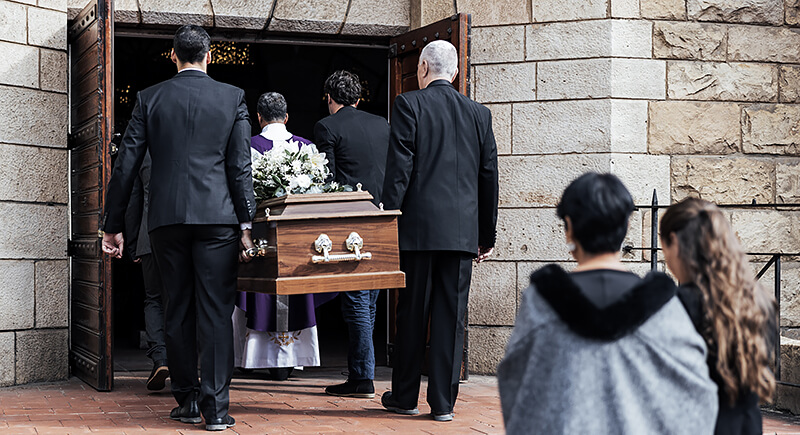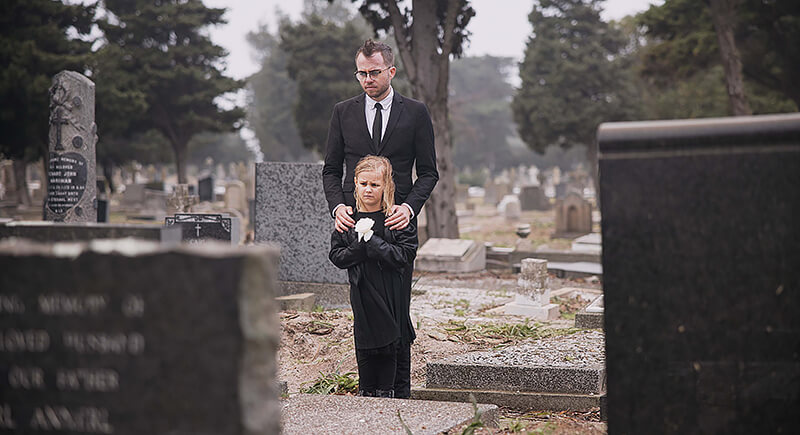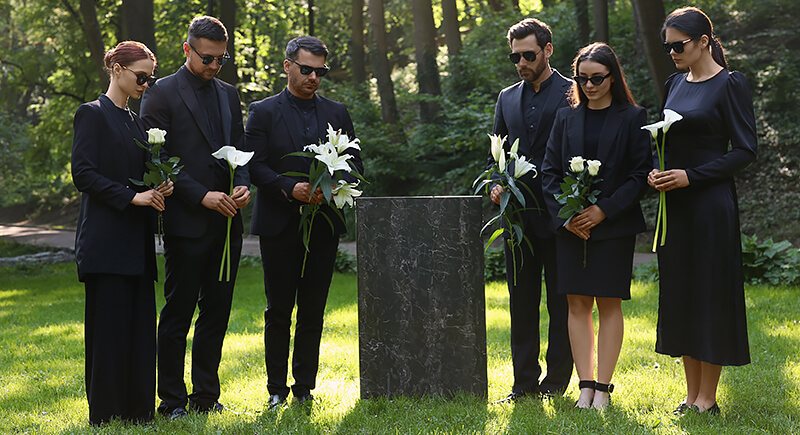People avoid death talk, and perhaps that’s the biggest reason why nearly everyone faces the financial aftermath it leaves behind. Beyond the visible expenses, such as funeral services, burial, or cremation, there’s a layer of hidden costs that quietly add up. These bills contribute to unexpected complications that catch families off guard. And because these things often surface during an emotional time, they’re easy to overlook until they hit the bank account.
Knowing what’s coming doesn’t soften the blow, but it can make it easier to manage when the time arrives.
Dying Without a Will Triggers Legal Limbo

Credit: iStockphoto
When there’s no will, the state takes over, and it's not fast. Months (or years) of probate follow, where courts decide who gets what. Guardianship decisions, property divisions, even grandma’s earrings, all hang in limbo. And if anyone’s unhappy, expect lawyer bills and family silence at Thanksgiving.
Executor Fees Drain Estate Value Fast

Credit: iStockphoto
Appointing an executor sounds simple until the bill arrives. Many states allow them to charge 2–5% of the estate. Others bill hourly, with the court signing off. Even modest estates can lose thousands in executor compensation and related administrative costs.
Funeral Homes Benefit from Last-Minute Decisions

Credit: iStockphoto
Funerals are usually planned under stress, and families are vulnerable to upselling. Packages bundle services with hidden markups, while caskets sold by funeral homes can cost far more than identical ones online. The FTC’s “Funeral Rule” allows families to purchase caskets and urns from third parties, but most don’t realize it.
Cemetery Plots Come with Long-Term Burdens

Credit: iStockphoto
Buying that patch of land is just the first step. There’s a fee for opening and closing the grave, plus a grave liner, sometimes required by the cemetery. Add maintenance costs or disputes if multiple heirs inherit unused plots. Suddenly, the “final resting place” becomes more like a long-term bill.
Delayed Estates Freeze Financial Access

Credit: iStockphoto
Most bank accounts get locked during probate, which means no one can touch the money, even for urgent things. That leaves family members scrambling to pay funeral costs, mortgage bills, or basic expenses out of pocket, while waiting months for court approval to use funds the deceased actually intended for them.
Prepaid Funerals Are Rarely Promoted—for a Reason

Credit: iStockphoto
Funeral homes technically offer pre-need plans, which lock in pricing early. But they rarely advertise them. Families walk in grieving and pay more than they have to. Some prepay plans have been mismanaged, too, making people understandably cautious—though regulated, trustworthy ones do exist.
Legal Costs Extend Beyond the Will

Credit: iStockphoto
Probate lawyers do more than read a document. They handle debts, filings, court appearances, and sometimes home sales. Their fees add up quickly, often through flat rates or hourly billing. Even modest estates can burn through thousands, especially if anything is contested or messy. Most families aren’t prepared for the scope.
Trust and Administration Fees Build Up Over Time

Credit: iStockphoto
If someone left a trust for tax reasons or minor children, that trust needs managing. Enter trustees, often banks or attorneys, who charge annual fees—usually between 0.25% and 1.5% of the assets. Over decades, those fees nibble away at the inheritance, especially when investments are involved. It’s slow, steady shrinkage.
The Price of Grief Is Paid at Work

Credit: iStockphoto
There’s no federal law guaranteeing bereavement leave. Many employers offer just three to five days, forcing some workers to use unpaid time off. Handling funeral planning, estate logistics, and travel often takes weeks, and women in particular report shouldering a heavier financial and emotional burden.
Cremation and Burial Costs Keep Rising

Credit: iStockphoto
According to the National Funeral Directors Association, the median funeral with burial costs around $9,400 (including a vault), while cremation averages $6,280. Direct cremation may look cheap at first, but transport, storage, and services often add more. Prices rise steadily each year, but few families shop around or negotiate.
Health Problems Compound the Financial Loss

Credit: iStockphoto
Grief doesn’t stop at the funeral. Survivors often face insomnia, anxiety, weight changes, and depression. Many require therapy or medication, which can be expensive without adequate insurance. If a worker has already lost wages taking time off, the added medical costs only deepen the strain.
Property Transfers Aren’t Automatic or Free

Credit: iStockphoto
Even when property is left to heirs, legal transfers require probate or deed filings. Title searches, court costs, and attorney fees all apply. If multiple heirs inherit a home, they must agree on selling or refinancing—disagreements often stall the process.
Lost Insurance or Pension Benefits Go Unclaimed

Credit: iStockphoto
Every year, billions in life insurance benefits and pension funds go unclaimed. This happens when paperwork is missing or no one knows the policy exists. If beneficiaries aren’t updated or recorded properly, families never collect. The money just sits there, often forever. A filing cabinet can make or break someone’s legacy.
International Deaths Multiply the Expense

Credit: Wikimedia Commons
When someone dies outside the country, it sets off a bureaucratic chain reaction. Flying home can cost over $10,000. There’s paperwork, official translations, and foreign death certificates. Without travel or life insurance, the family covers it all. And no, most embassies won’t help beyond a form or two.
Family Conflict Adds Another Layer of Loss

Credit: iStockphoto
Death doesn’t fix family drama. In fact, it makes it louder. Without clear instructions, siblings argue over who gets what, who plans the funeral, or where someone should be buried. Lawsuits aren’t uncommon, and lifelong rifts form over sentimental items. The financial toll is bad, but the emotional one can be worse.
